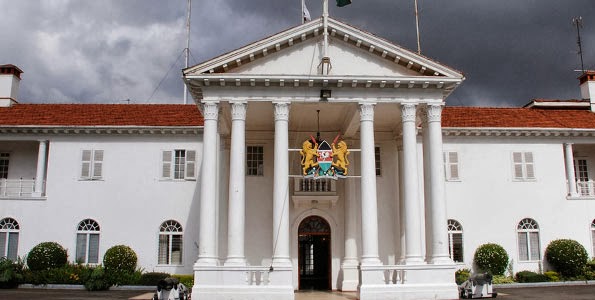The Kenyan government appears to be spending out Sh146,423 per month on Twitter verification badges.
This is based on the verified accounts of Kenya’s State House, President William Ruto, and his deputy, Rigathi Gachagua.
According to Twitter, a verified organisation pays up to $1,000 (Sh139,450) per month and $50 (Sh6,972) for each additional affiliate. This amounts to a total of Sh146,423 per month.
The Kenyan government appears to be spending Sh146,423 per month on Twitter verification badges.
This is based on the verified accounts of Kenya’s State House, President William Ruto and his deputy Rigathi Gachagua.
According to Twitter, a verified organisation pays up to $1,000 (Sh139,450) per month and $50 (Sh6,972) for each additional affiliate. This amounts to a total of Sh146,423 per month.
This expenditure would earn an organisation a grey tick and a square avatar if it is a government or international body. For example, if the State House Twitter account applied for a verified badge, the President and Vice-President would have to pay Sh6,972 per month to maintain their verified status.
“Twitter Verified Organisations allows organisations of all types – businesses, non-profits and government institutions – to sign up and manage their verification, as well as link and verify any associated account,” reads the Twitter blog.
In April, Gachagua’s Twitter account lost its blue tick after Twitter CEO Elon Musk introduced the new Twitter Blue feature. This new subscription gives users the ability to prioritise replies, mentions and searches, giving them a better chance of fighting spam/scams. They will also see fewer ads and be able to post longer videos and audio. Twitter’s verification system, symbolised by a blue tick next to a user’s handle, was first created in 2009, three years after the site launched.
“There will also be a secondary tag below the name for someone who is a public figure, which is already the case for politicians,” Musk said.
The system was created to confirm a user’s identity. Elon Musk announced that it would cost about Sh972 ($8) per month to be verified.
“Twitter Verified Organisations allows organisations of all types –businesses, non-profits, and government institutions – to sign up and manage their verification as well as link and to affiliate and verify any associated organisation,” the Twitter blog said.
“There will also be a secondary tag below the name for someone who is a public figure, which is already the case for politicians,” Musk said.
The system was created to confirm a user’s identity. Elon Musk announced that it would cost about Sh972 ($8) per month to be verified.
“Twitter Verified Organisations allows organisations of all types – businesses, non-profits and government institutions – to sign up and manage their verification, as well as link and verify any associated organisation,” the Twitter blog said.
In April, Gachagua’s Twitter account lost its blue tick after Twitter CEO Elon Musk introduced the new Twitter Blue feature. This new subscription gives users the ability to prioritise replies, mentions and searches, giving them a better chance of fighting spam/scams. They will also see fewer ads and be able to post longer videos and audio. Twitter’s verification system, symbolised by a blue tick next to a user’s handle, was first created in 2009, three years after the site launched.
“There will also be a secondary tag below the name for someone who is a public figure, which is already the case for politicians,” Musk said.
The Independent reported that the concept of verification was initiated after Tony La Russa, a prominent baseball figure, filed a lawsuit against Twitter in 2009 over an impostor. The system was created to confirm a user’s identity. Elon Musk announced that it would cost about Sh972 ($8) per month to obtain verification.
“There will also be a secondary tag below the name for someone who is a public figure, which is already the case for politicians,” Musk said.
The Independent reported that the concept of verification was initiated after Tony La Russa, a renowned baseball figure, filed a lawsuit against Twitter in 2009 over an impostor. The system was created to confirm a user’s identity. Elon Musk announced that it would cost about Sh972 ($8) per month to obtain verification.
























































